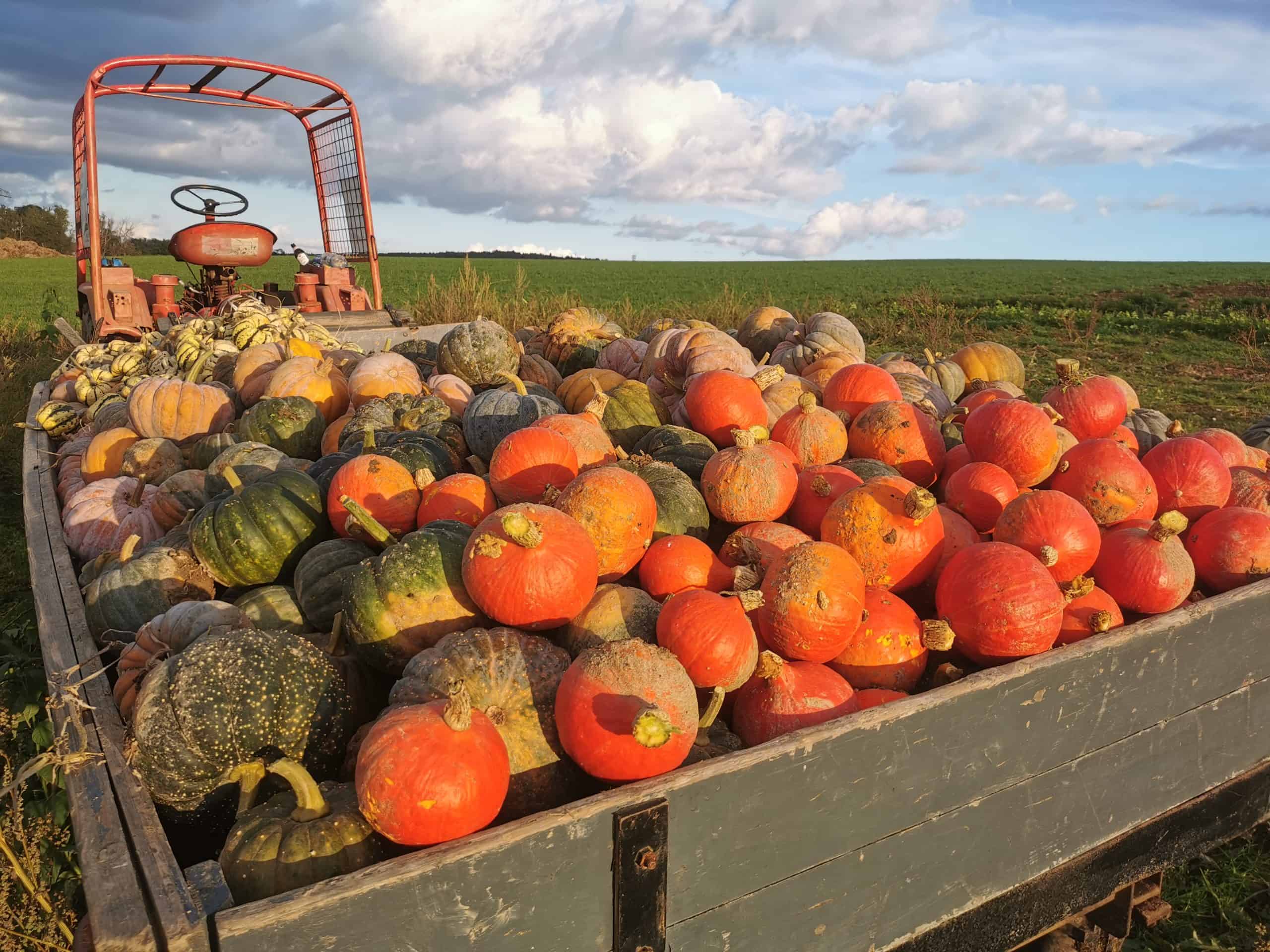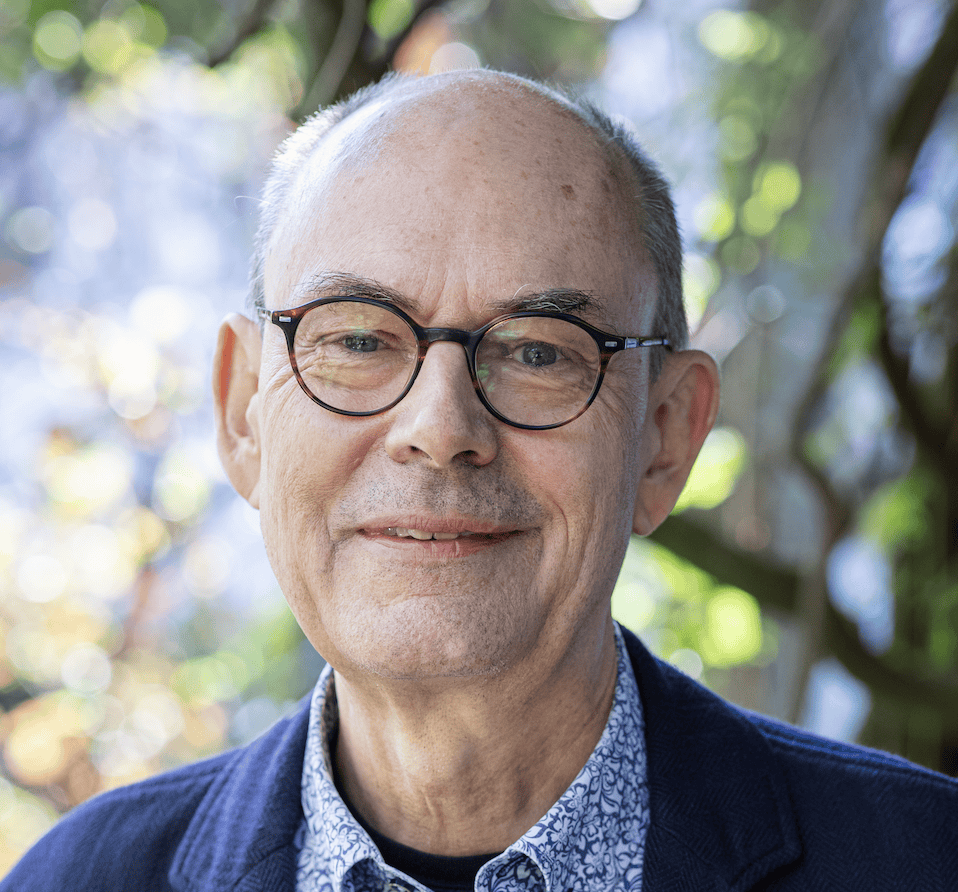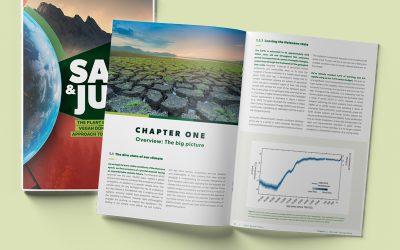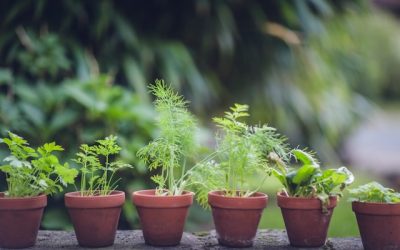Blog
Biocyclic vegan agriculture is the future of farming
August 29, 2024
Biocyclic vegan agriculture means purely plant-based organic farming, without the use of animals or animal-based fertilizers. This vegan and organic approach to farming can help to protect and regenerate the environment and offer a good economic future for farmers. Biocyclic vegan agriculture is based on a globally applicable cultivation standard and certification scheme and focuses on biodiversity, the closure of organic cycles, healthy soil life, and systematic humus build-up. It demonstrates that sustainable soil fertility and high yields can be achieved without animal excrement and slaughterhouse by-products as fertilizers. In this respect, it contributes significantly to climate protection and opens up completely new perspectives in animal ethics, where more and more people no longer consider it justifiable to exploit and kill sentient beings for human use.

Harvest in Germany, © Biohof Hausmann

Axel Anders, © Adolf Hoops Society
“We don’t need to take a detour by farmed animals. To get the nutrients into the soil, we can do it directly by plants”, Axel Anders says.
Currently, the certification scheme and the Biocyclic Vegan Quality Label connected to it, are not yet widely spread in the commercial market. It is something that is required for the future to grow globally and be economically viable. However, with the current decline in meat and dairy consumption in Germany, biocyclic vegan agriculture is becoming more visible. Axel can see how different stakeholders are increasingly aware that a transition to a more plant-based food and agriculture system is mandatory, and that the numbers of animals in animal agriculture need to be drastically reduced.
“Some years ago, people were laughing about the idea. Now, they are starting to see that we must do things differently. There is a real paradigm shift taking place”, Axel says.

PlantAge Cooperative, Germany, © PlantAge Cooperative
In 2021, the German biocyclic vegan organization Förderkreis Biozyklisch-Veganer Anbau e. V. was assigned a project by the Federal Environment Agency called “Veganer Ökolandbau”, entitled “Transforming the food system by developing and increasing the contribution of biocyclic vegan agriculture”. This successful project is already running in its second 24-month phase.
“Together with our partner organizations in Germany TransFARMation Deutschland and FABA Konzepte, we were invited to draw up recommendations for the German Ministry of Food and Agriculture. The focus was on how to develop projects and programs that help farmers give up animal husbandry and instead transition to the production of plant proteins. We recently presented this online as input to further discussion,” Axel says.

Moosfeld Gemüse, Germany, © Biocyclic Network Services Ltd.
Until recently, farmers who saw themselves confronted with the increasing economic pressure on animal agriculture or who wanted to give up animal farming for ethical reasons, did not have any alternatives in organic agriculture. But this is changing now, Axel emphasizes. More and more farms are becoming interested in converting, especially to the biocyclic vegan approach.
“To do this successfully, the farmers need support, consulting, and money for the transition. It is almost like changing careers. That’s where the governments must come in and support as they do with other industries in crisis. Farming is the economic sector in Europe where most of the European subsidies are spent, with the largest share being allocated to [animal] farming.”
“Even if a product is vegan, by eating conventional food, you still support the use of synthetic fertilizers and pesticides, and you still support monocultures which are problematic for the environment. It is not ethical and vegan in the real way. Consequently, you are still partly responsible for the decline in biodiversity above and below ground. If you want a genuinely vegan approach to farming, it needs to be truly regenerative and organic, following the motto of Adolf Hoops: “From healthy soil to healthy plants and healthy people”.

Costas Economidis, Cyprus, © Biocyclic Network Services Ltd.
In addition, biocyclic vegan agriculture offers another option to achieve lasting soil fertility and amazing yields: Biocyclic Humus Soil. This is obtained from a special refinement process in which plant-based organic matter is composed in windrows and directly planted with vegetables.
The method with Biocyclic Humus Soil is especially beneficial. Humus soil is unique in that it can be used where there is no fertility at all. And still, it has this enormous fertility itself. Just putting this material on the ground and letting it ripen is letting nature take care of it.
“Planting vegetables on this compost and seeing the change in the microbiome of the soil and how soil life helps to attract the nitrogen from the air and feed the plants in a perfect symbiosis. It is fantastic, and it happens in nature as well. With Biocyclic Humus Soil, you can grow plants and vegetables for decades without fertilizing anymore.”

Biocyclic Park Humus Soil Production, © Biocyclic Network Services Ltd.
Axel Anders can see that farmers are increasingly eager to learn these techniques.
“In some cases, the next generation takes over. They are often much more concerned than their parents about the climate and other environmental issues that are threatening our planet. Or they no longer want to send the animals they raise to the slaughterhouse. For them, the transition to organic and vegan is just natural.”
But there can also be challenges. Some farmers experience hostile reactions from their communities, even from old friends. They see them as traitors who challenge the traditional image of animal farming established for generations. Overcoming this gap requires a lot of goodwill, patience, and mutual understanding. And to make it clear that transitioning to biocyclic vegan agriculture is a personal choice for one’s own future, not necessarily a threat and a questioning of one’s neighbors’ lifestyle.
Currently, most biocyclic vegan projects are located in the German-speaking countries, in Greece and Cyprus, as well as in other European countries such as the Netherlands, France, Italy, UK, and Romania. There are also some biocyclic vegan farms in North and South America.
Universities and research centers in various countries have started investigating purely plant-based fertilization methods and other aspects of biocyclic vegan agriculture. Biocyclic Vegan International’s website has an up-to-date list of all relevant scientific literature.
Despite all these promising prospects, biocyclic vegan agriculture is a young initiative, still in its infancy, and requires a great deal of support and recognition from politics, NGOs, the scientific community, the food industry, consumers, and the farmers themselves. Additionally, the Adolf Hoops Society needs to strengthen its structure to respond to the growing worldwide demand.
“This is the future. What we are teaching in many aspects is a missing link. We want to give these techniques to the farmers, so they can give up [animal] farming and start producing organic fruits, vegetables, cereals, and legumes for human consumption. We want to show that it is possible, inspire change, and show a direction to something better.”
Plant Based Treaty has three core principles: Relinquish, Redirect and Restore. Under Redirect, is a detailed proposal on veganic farming:
“Shift away from monoculture-based arable farming that depletes soil, decreases biodiversity and is reliant on external inputs such as animal manure and agrochemicals towards diversified, agroecological, veganic (vegan and organic) farming using regenerative, permaculture and natural principles that restore soil and ecosystems, enhance food security and provide nutrient-dense foods”.
Biocyclic Vegan International and their German country organization Förderkreis have endorsed the Plant Based Treaty. It aligns with their mission to promote a sustainable and ethical food system that excludes animal exploitation. Plant Based Treaty’s focus on shifting to plant-based agriculture resonates with their commitment to environmentally friendly practices that protect biodiversity, reduce greenhouse gas emissions, and support soil health. By endorsing the treaty, they reinforce their advocacy for a global transition to a plant-based food system as a crucial step in addressing climate change and fostering a more compassionate world.

Anne Casparsson is a writer and ethicist, who has worked with communication and journalism in different capacities, for more than twenty years. She writes about animal rights, veganism, sustainability, justice, and peace related issues. Anne is based in Stockholm where she lives with her family. She is a dedicated voice for the animals.

Anne Casparsson is a writer and ethicist, who has worked with communication and journalism in different capacities, for more than twenty years. She writes about animal rights, veganism, sustainability, justice, and peace related issues. Anne is based in Stockholm where she lives with her family. She is a dedicated voice for the animals.
More from the blog
6 Important Calls To Action From The Safe And Just Report – Part One
By Miriam Porter
Grow Your Own Kale And Spinach For Healthy Green Smoothies
By Miriam Porter
The Importance Of Exercise And Tips On Building Muscle
By Miriam Porter



